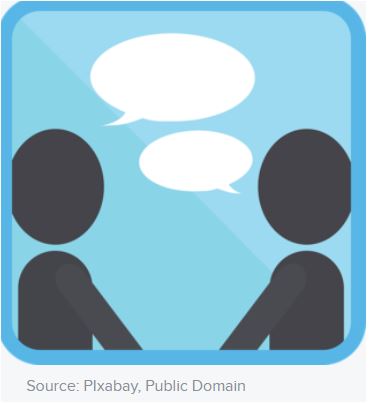ADHD-Friendly Small Talk: A Complete Guide to Confident Social Conversations
Master the art of small talk with ADHD – practical strategies for engaging conversations that work with your brain, not against it.
Table of Contents
Understanding Small Talk with ADHD
Best Conversation Topics for ADHD Minds
Managing Social Interactions
FAQs About ADHD and Small Talk
Expert Tips and Resources
Understanding Small Talk with ADHD
Living with ADHD can make small talk feel like navigating a maze blindfolded. Traditional conversation rules often don’t account for the unique way ADHD minds process information and social cues. This guide offers neurodivergent-friendly strategies to transform potentially awkward exchanges into engaging conversations.
The ADHD Social Communication Style
ADHD brings unique strengths to conversations:
Quick associations that create interesting connections
Genuine enthusiasm that engages others
Creative thinking that brings fresh perspectives
Ability to hyperfocus on interesting topics
Best Conversation Topics for ADHD Minds
Interest-Based Topics (Dopamine Activators)
Transform small talk into engaging discussions by focusing on:
Personal passions and current hyperfocuses
Recent discoveries and “did you know” facts
Technology trends and innovations
Creative projects and ideas
Fascinating science or history facts
Action-Oriented Conversations
Keep discussions dynamic with topics about:
Upcoming local events and festivals
New restaurants and entertainment venues
Recent adventures or activities
Travel stories and future plans
DIY projects and home improvements
Low-Pressure Topics
Navigate social situations confidently with these easy-to-discuss subjects:
Weather impacts on daily life and mood
Pet stories and animal facts
Food preferences and cooking experiments
Immediate environment observations
Current entertainment choices
Managing Social Interactions
Conversation Navigation Strategies
When Your Mind Races:
Keep a “conversation topics” note on your phone
Use environmental cues as conversation starters
Practice mindful listening techniques
Transform distractions into discussion points
Managing Overwhelm:
Take strategic breaks using natural pauses
Practice grounding techniques
Set boundaries for conversation duration
Use fidget items discreetly if needed
Channeling Enthusiasm:
Share your excitement while creating space for others
Use the “traffic light” system for monitoring talking time
Practice active listening cues
Balance sharing and questioning
Graceful Exit Strategies
Pre-plan natural conversation endings
Use honest but positive exit phrases
Schedule time-limited social interactions
End with specific appreciation points
FAQs About ADHD and Small Talk
Q: How can I remember people’s names during conversations?
A: Create immediate associations, use the name naturally in conversation, and don’t be afraid to ask for reminders.
Q: What if I keep interrupting people?
A: Practice the “two-second rule” before responding and use non-verbal cues to show you’re engaged while listening.
Q: How do I stay focused when the environment is distracting?
A: Position yourself to minimize visual distractions and use fidget tools or doodling to help maintain focus.
Expert Tips and Resources
Daily Practice Exercises
Mirror conversations with trusted friends
Record and review your conversation patterns
Practice topic transitions in safe spaces
Develop personalized conversation scripts
Professional Support
Consider social skills coaching
Explore ADHD-specific communication therapy
Join ADHD support groups for practice
Use mindfulness apps for social situations
Keywords and Meta Information
Primary Keywords: ADHD small talk, ADHD social skills, ADHD conversation tips
Secondary Keywords: neurodivergent communication, ADHD social strategies, ADHD-friendly topics
Target Audience: Adults and teens with ADHD, parents, educators, counselors
Focus: Practical strategies, real-world applications, confidence building
Remember: Your ADHD isn’t a conversation barrier – it’s a unique lens that can create meaningful and memorable interactions. Use these strategies to transform small talk from a challenge into an opportunity for genuine connection.
Last Updated: November 2024










